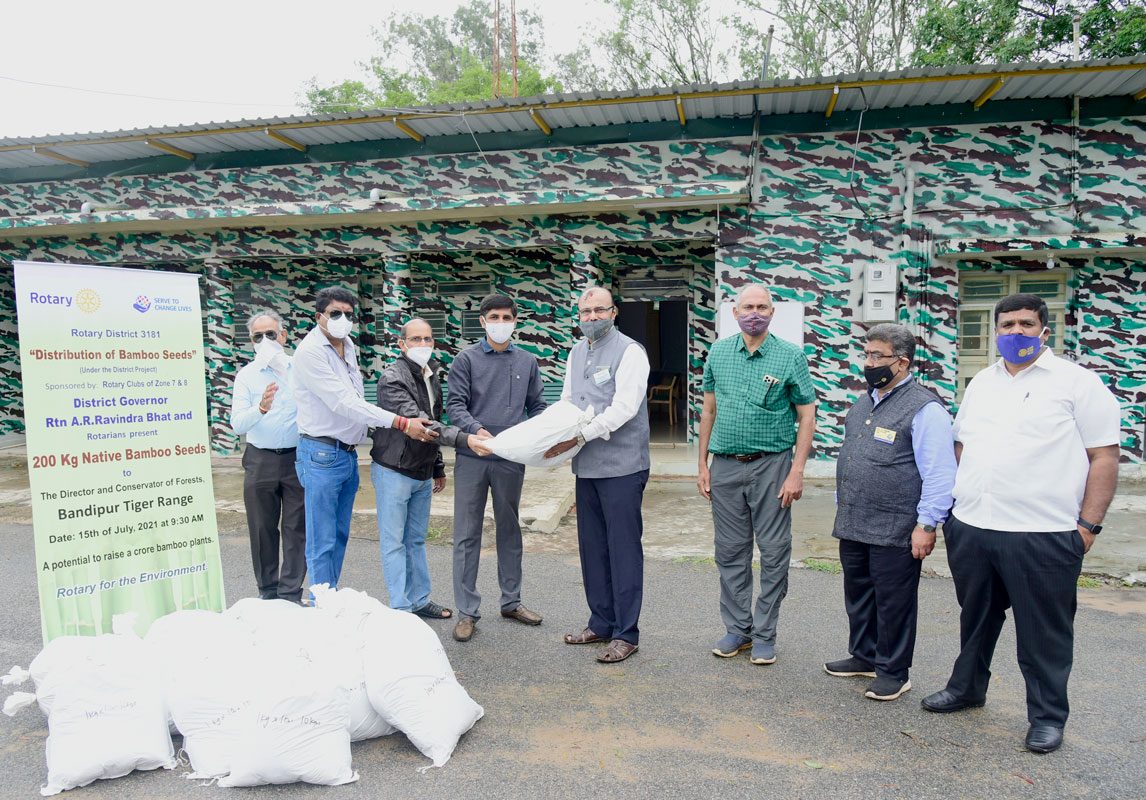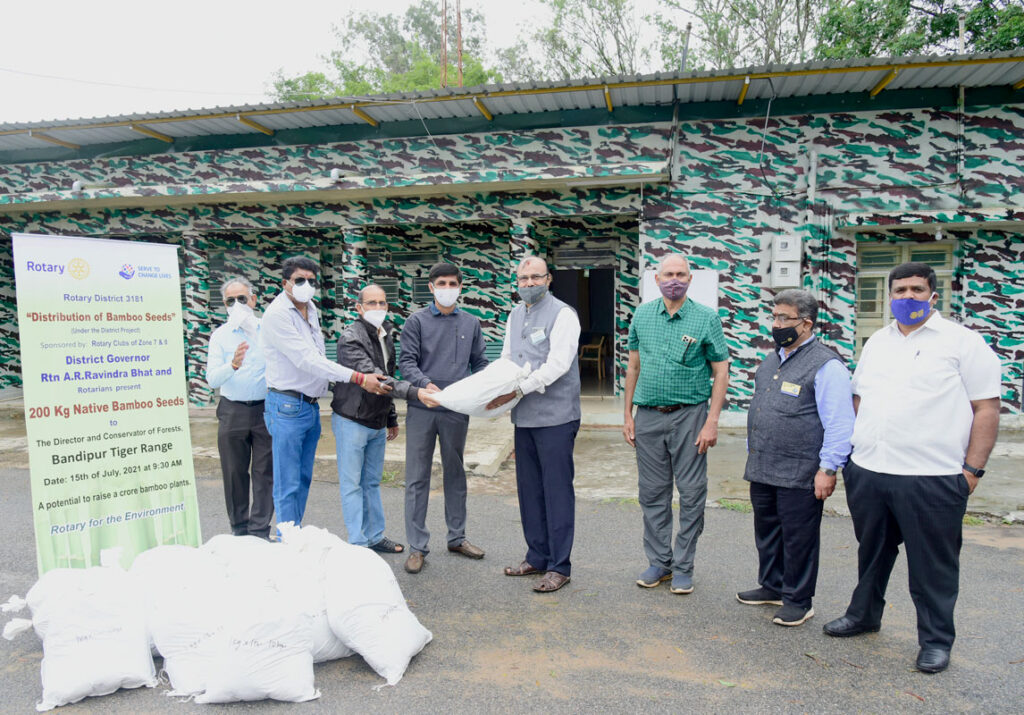Rotary’s seventh area of focus is even more pronounced now as, at the recently concluded COP26 UN Climate Change Conference at Glasgow, RI President Shekhar Mehta highlighted Rotary’s efforts in protecting the environment. He hinted at mangrove restoration to become one of the key threads of Rotary’s environment focus.

Back home, RI District 3181 has provided 1,275 kg of bamboo seeds to Rotary clubs across India, Nepal and the Maldives. “One kilo contains about 80,000 seeds. So that is equivalent to 10 crore seeds,” says DG A R Ravindra Bhat. It all began when C R Hanumanth, chairman, District committee for Supporting Environment, noticed the flowering of the Indian thorny bamboo, and contacted the Karnataka Forest department to mobilise bamboo seeds in large numbers through a tribal population residing in the Chamarajanagar district which is surrounded by stretches of dense forests. The seeds were collected, dried and packed in airtight bags. The district bought these bags at ₹350 a kg.
DG Bhat mobilised Rotary clubs in the district to promote bamboo plantations in their regions. Over 865 kg of seeds were distributed across the district. RC Gonikoppal led by president Neetha Kavaremma raised funds and gave 250 kg seeds to the Nagerhole Tiger Reserve and Hanumanth’s home club, RC Mysore West gave 200 kg to the Bandipur Tiger Reserve.
“Even if we assume 10 per cent rate of survival, we will get 45-50 lakh saplings in a year. This is one way how we can promote greenery and protect our environment,” says Hanumanth. This is a wonder grass with multiple benefits. It helps in carbon sequestration. Much loved by elephants, plentiful supply of bamboo would entice them to stay on in the forests rather than venture into agricultural fields. The shoots, which can be harvested from the sixth year, provide alternative source of income for rural households.
Hanumanth made a video on bamboo seed planting with guidance from PDG Ajay Gupta (RID 3141) who is associated with an NGO, Friends of Environment, and screened it online for 450 Rotarians and members of ESRAG (Environment Sustainability Rotary Action Group). “Soon we were inundated with orders from across the country.”
He is confident that if clubs maintain the momentum of bamboo dibbling and sapling planting, “in the next four years Rotary India can lead in giving an effective climate solution.”






